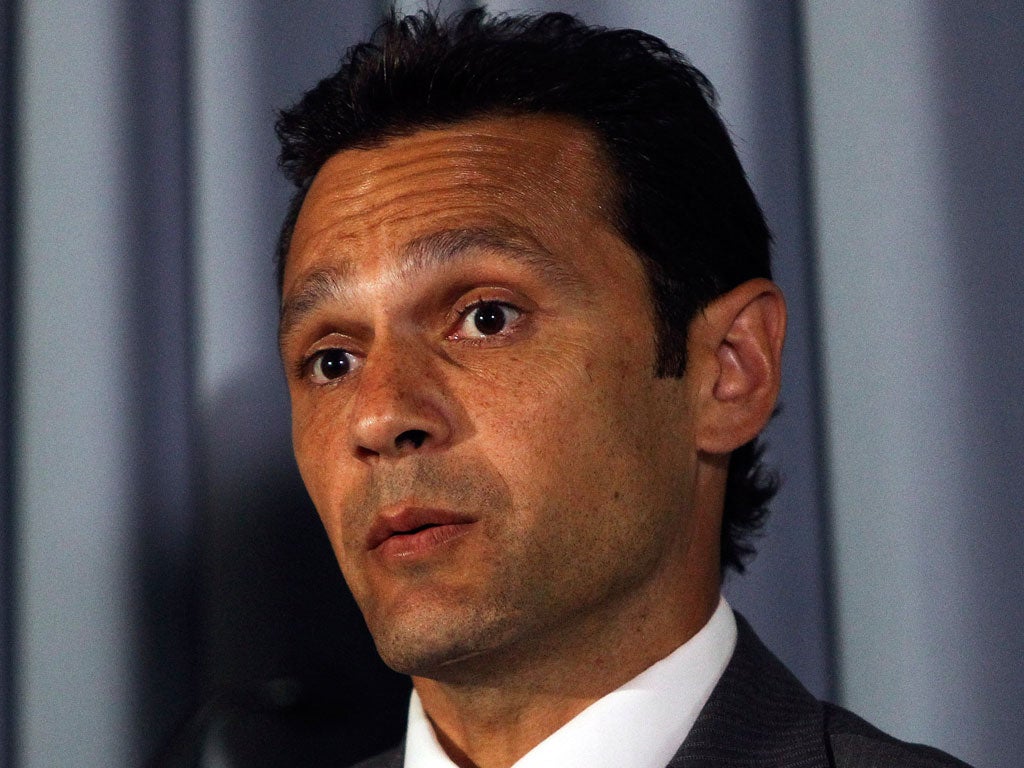On the Front Foot: How England brought India and Pakistan together again

England played a key role in the crucial resumption of cricketing ties between India and Pakistan. It was evident in two ways.
First, Giles Clarke, the England and Wales Cricket Board chairman, acted as a conduit between officials of the two countries and advised Pakistan at every turn. Secondly, the necessary gap appeared in the schedules only because England's players insisted on splitting their tour of India and coming home for Christmas.
It took a high diplomacy to bring the two Asian cricketing juggernauts together after the schism caused by the terrorist attacks on Mumbai four years ago. Without the acquiescence of the Indian government it would not have happened, but Clarke's part was significant.
He helped to broker the deal by carefully calculating what Pakistan needed to do. Their chairman, Zaka Ashraf, is new to cricketing politics and needed steering through choppy waters.
Clarke has formed an unlikely alliance with the Asian bloc in learning to traverse the corridors of cricketing power. His relationship with Indian board secretary N Srinivasan undoubtedly helped, and who knows where it might lead for Clarke in time.
It is as well he sees the wider picture. He was deeply hurt after the Pakistan match-rigging shenanigans in England two years ago after he had done much to ensure their playing neutral Tests here.
England's players cannot have known what a significant part their demands played in helping to heal wounds. If England's tour had proceeded as India originally wanted there would have been no break and no time in the programme.
Cricket would have continued to suffer from the lack of co-operation between India and Pakistan, which has commercial effects well beyond their own boundaries. But England's desire for hearth and home provided the fortnight essential for three one-day matches. It also means that India will have their eye in by the time England return.
Listen to Ramps' booze warning
In a calmly considered radio interview with Jonathan Agnew on Test Match Special, Mark Ramprakash drew attention last week to the drinking culture that exists in cricket. He did not rant and rave about its existence but merely stated what was happening and what its effects might be.
It has been an open secret for a year or so that some young cricketers are burning the candle at both ends. Maybe this has always happened to some degree in a game whose social element is important. Indeed, Ramps, recently retired, lamented the fact that over a long career he had not spent long enough chatting to opponents over a post-match drink.
But in some clubs there has been a disturbing trend – and since Ramprakash had been playing for Surrey for 12 years it may not take much to deduce which one he had in mind. Ramprakash spoke because in terms or preparation he was a model professional for two decades.
His words need to be heeded quickly.
Ducking and thriving
There are good ducks and bad ducks. Ravi Bopara had a bad duck in the first Test on Friday when he could not make up his mind between pulling and leaving and ended up innocuously feathering a catch behind.
It was his fifth duck in 18 Test innings. For England, only Alan Mullally and Monty Panesar have a higher percentage than Bopara's 27.7. On the bright side, Bopara has three hundreds, or a century strike rate of 16.6 per cent.
Only Charles Russell (five in 18 innings, giving him 27.78) and Herbert Sutcliffe (16 in 84 or 19.05) have a higher proportion. How Ravi needs another quickly.
Matt keeps up the No 7 tradition
It is often rightly suggested that Matt Prior is the best No 7 batsman in Test cricket. His 60 in England's first innings at The Oval took his aggregate of runs there to 1,693, and only Alan Knott has scored more there for England. Number seven has become the wickies' position. Of the top-20 most prolific No 7s, 14 are wicketkeepers.
Join our commenting forum
Join thought-provoking conversations, follow other Independent readers and see their replies
Comments
Bookmark popover
Removed from bookmarks